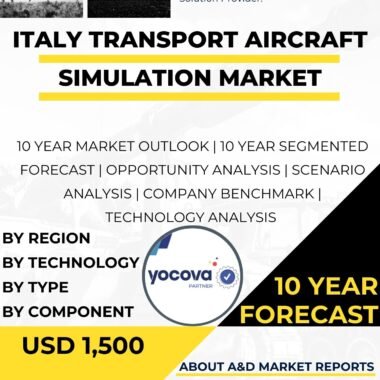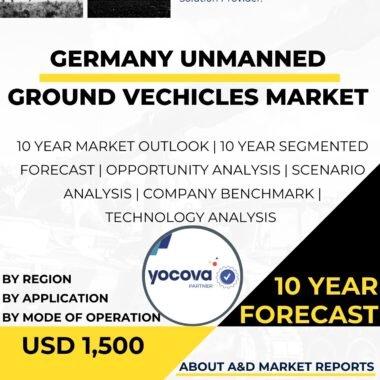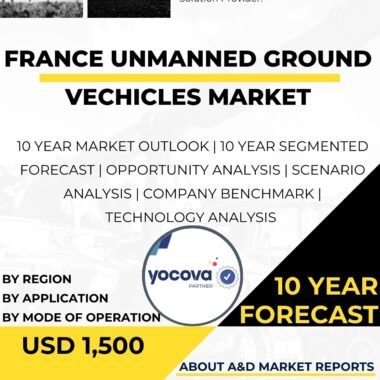Description
The Belgium unmanned ground vehicles (UGVs) market is a significant segment within the country’s defense and robotics industries. Unmanned ground vehicles play a crucial role in enhancing military operations by providing autonomous or remotely operated platforms for various applications, including reconnaissance, surveillance, logistics support, and hazardous material handling. These advanced systems offer increased situational awareness, reduced risk to personnel, and improved operational efficiency. Belgium recognizes the importance of UGVs in its defense capabilities, and the focus on unmanned ground vehicles is driven by the need to enhance operational effectiveness, protect personnel, and adapt to evolving warfare scenarios.
The primary driver for the Belgium unmanned ground vehicles market is the need for enhanced situational awareness and force protection. UGVs enable military forces to gather real-time intelligence, perform reconnaissance missions, and monitor the battlefield without exposing personnel to potential risks. These vehicles are equipped with various sensors, cameras, and communication systems that provide valuable data and enhance the decision-making process. Belgium’s focus on UGVs is driven by the need to enhance its defense capabilities, improve force protection, and ensure operational readiness.
Belgium’s domestic defense industry and robotics companies play a significant role in the development, production, and integration of unmanned ground vehicles. Belgian companies, such as FN Herstal and Sabca, have expertise in robotics, autonomous systems, and sensor technologies, contributing to the country’s defense capabilities. These domestic capabilities foster innovation, create job opportunities, and contribute to the economic growth of the Belgium unmanned ground vehicles market.
Collaborations with international partners and suppliers are also significant for the Belgium UGVs market. Belgium often engages in partnerships with defense and technology companies from NATO member states and other allied nations to access advanced UGV technologies, benefit from joint research and development programs, and ensure interoperability with allied forces. These collaborations enable Belgium to leverage global advancements in UGV capabilities, enhancing the performance, reliability, and effectiveness of its defense operations.
Furthermore, Belgium’s participation in multinational defense initiatives influences the UGVs market. Collaboration within NATO and other international defense cooperation programs fosters interoperability, joint training exercises, and the exchange of best practices. This cooperation ensures compatibility and enhances operational effectiveness when conducting joint military operations with allied forces.
The Belgium UGVs market faces challenges such as technological advancements, integration with existing systems, and regulatory considerations. Technological advancements in UGVs, including autonomous navigation, obstacle avoidance, and sensor fusion capabilities, require continuous research and development efforts. The Belgium market needs to stay at the forefront of innovation to provide state-of-the-art UGVs that meet the evolving operational requirements and address emerging challenges.
Integration with existing systems and infrastructure is a crucial consideration in the adoption of UGVs. Belgium’s defense industry must ensure seamless integration with existing command and control systems, communication networks, and other unmanned and manned platforms. Compatibility and interoperability are essential to support joint operations and enable effective collaboration on the battlefield.
Regulatory considerations, including safety, cybersecurity, and ethical considerations, are important factors in the deployment and operation of UGVs. Belgium’s defense industry must comply with national and international regulations to ensure safe and secure operations. Addressing privacy concerns, implementing robust cybersecurity measures, and adhering to ethical guidelines are essential to maintain public trust and mitigate potential risks associated with UGVs.
In conclusion, the Belgium unmanned ground vehicles market is a significant segment within the country’s defense and robotics industries. UGVs provide critical capabilities for enhanced situational awareness, force protection, and operational efficiency. Domestic capabilities, collaborations with international partners, and Belgium’s participation in multinational defense initiatives drive the growth and development of the UGVs market. As operational requirements evolve and technological advancements continue, the demand for advanced and versatile UGVs is expected to increase, fostering innovation, collaboration, and economic growth within the sector.




